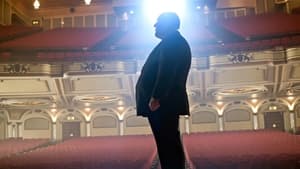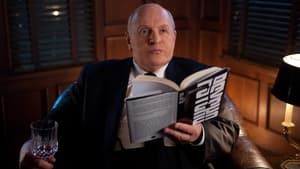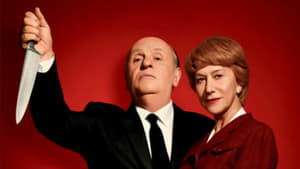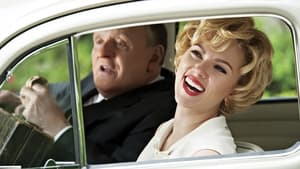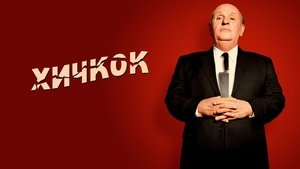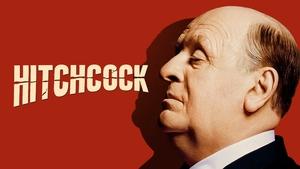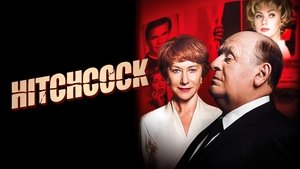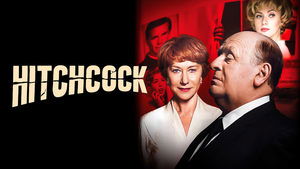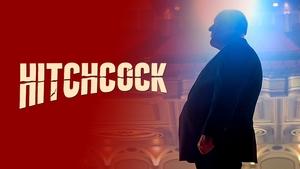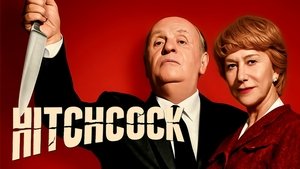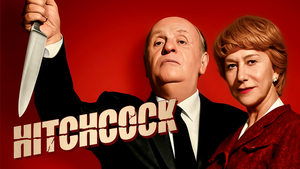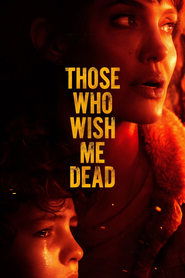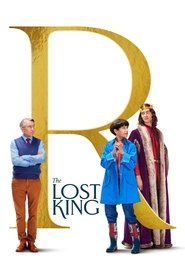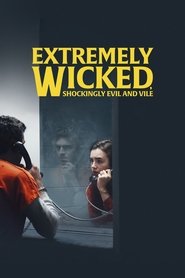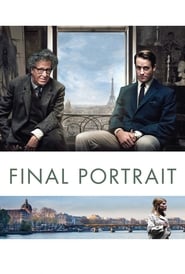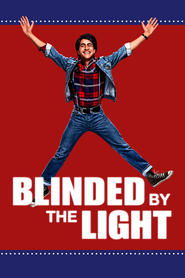Having directed some of the most notable films throughout the history of cinema, it's borderline criminal that Alfred Hitchcock never won any of his 5 Oscar Nominations or any of his astounding 8 Director's Guild of America Nominations. Despite all of his ego-shattering shortcomings by his peers and colleagues, no one would ever dare question the greatness of one of the finest directors to ever walk the planet. Therefore, when longtime writer and first time director Sacha Gervasi's biographical debut effort, Hitchcock, was first screened by its distributor Fox Searchlight Pictures, they did everything in their power to release it in time for an awards season run of its own.
After the massive success of his last film, North by Northwest, famed director Alfred Hitchcock (played by Anthony Hopkins) seeks out his next project. When he comes across a book called Psycho, which closely relates to the true crime murders by serial killer Ed Gein, Hitchcock quickly becomes hooked by the novel's fiendish flair. Grotesque, violent and well beyond anything people had ever seen, the director's sales pitch receives anything but a glowing endorsement from Paramount Pictures. Forced to finance the film on his own, Hitchcock and his loyal wife Alma (played by Helen Mirren) face immense economic and personal pressure all along their journey of bringing Psycho to the big screen.

Less so a movie about making a movie, Sacha Gervasi's major motion picture debut, Hitchcock, is a misdirected and contrived look at the inner workings of a strained relationship between husband and wife. Rather than deliver a My Week with Marilyn style of film showing the on-set genius of one of Hollywood's finest directors, Gervasi places his focus on the underlying backbone or Hitchcock's career, his wife Alma. Trying to sell the acclaimed career of Alfred Hitchcock as a complete team effort, Alma's character becomes the unrecognized master behind the curtain. And while the couple's relationship slowly begins to crumble, we watch as Hitchcock's Psycho metaphorically reaps the disastrous effects. Hence, reaffirming that Gervasi's feature is less about Psycho and more about the director's marriage. This approach clearly proves fatal as the issues of their struggling relationship become bogged down by the audience's deeper desire to see how one of cinema's greatest films came about. Furthermore, Gervasi strikes the wrong chord in two other areas of the movie. First, the outlandishness behind Hitchcock's recurring visions of Ed Gein are over the top and unnecessary. They ultimately create an imbalance to the feature that never gets corrected. Also, the opening and closing scenes of the film show Hitchcock breaking character from the movie and talking directly into the camera to the audience. Meant to pay homage to the television show Alfred Hitchcock Presents, these moments feel more forced than instrumental to the final product.

For as messy as Sacha Gervasi's Hitchcock appears to be, the work treads water because of an all-star cast featuring Academy Award winners Anthony Hopkins and Helen Mirren. Hopkins is undoubtedly stellar in his title role, but it's actually Mirren who walks away as the film's biggest winner. Mirren commands your full attention and dishes out a handful of Oscar-worthy scenes. In fact, Mirren and Hopkins are almost reason enough to venture to the theatre. On a smaller scale, the supporting work of Scarlett Johansson also adds a positive dimension to the feature. While Gervasi clearly battles to iron out an award's season contender, his cast attempts to pick up his slack and salvage his work. As a result, it wouldn't be a shock to see Mirren garner a nomination and, if it weren't for such a crowded Best Actor category, the same could be said for Hopkins.
2012's Hitchcock is a disappointing and misguided examination into the life and work of a cinematic genius. Disorganized and chaotic, the film ultimately descends from Oscar-hopeful to Oscar-doubtful. Although a highly regarded cast gives their best possible effort, Hitchcock ends up falling flat and feeling like an insufficient piece of filmmaking. Thus, there's no reason to rush and see Hitchcock in theatres, as you're best suited waiting for DVD to catch these strong onscreen performances.
-
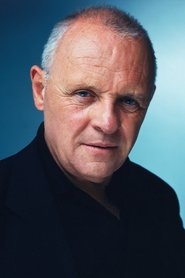 NameAnthony HopkinsCharacterAlfred Hitchcock
NameAnthony HopkinsCharacterAlfred Hitchcock -
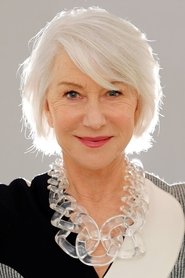 NameHelen MirrenCharacterAlma Reville
NameHelen MirrenCharacterAlma Reville -
 NameScarlett JohanssonCharacterJanet Leigh
NameScarlett JohanssonCharacterJanet Leigh -
 NameDanny HustonCharacterWhitfield Cook
NameDanny HustonCharacterWhitfield Cook -
 NameToni ColletteCharacterPeggy Robertson
NameToni ColletteCharacterPeggy Robertson -
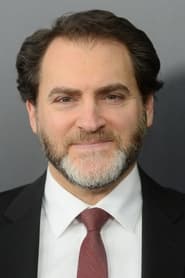 NameMichael StuhlbargCharacterLew Wasserman
NameMichael StuhlbargCharacterLew Wasserman -
 NameMichael WincottCharacterEd Gein
NameMichael WincottCharacterEd Gein -
 NameJessica BielCharacterVera Miles
NameJessica BielCharacterVera Miles -
 NameJames D'ArcyCharacterAnthony Perkins
NameJames D'ArcyCharacterAnthony Perkins -
 NameRichard PortnowCharacterBarney Balaban
NameRichard PortnowCharacterBarney Balaban -
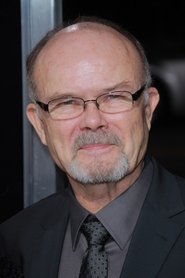 NameKurtwood SmithCharacterGeoffrey Shurlock
NameKurtwood SmithCharacterGeoffrey Shurlock -
 NameRalph MacchioCharacterJoseph Stefano
NameRalph MacchioCharacterJoseph Stefano -
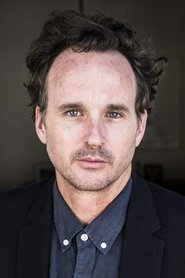 NameKai LennoxCharacterHilton Green
NameKai LennoxCharacterHilton Green -
 NameTara SummersCharacterRita Riggs
NameTara SummersCharacterRita Riggs -
 NameWallace LanghamCharacterSaul Bass
NameWallace LanghamCharacterSaul Bass -
 NamePaul ShackmanCharacterBernard Herrmann
NamePaul ShackmanCharacterBernard Herrmann -
 NameCurrie GrahamCharacterPR Flack
NameCurrie GrahamCharacterPR Flack -
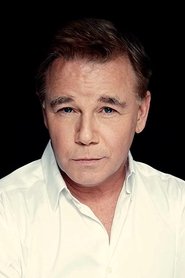 NameSpencer GarrettCharacterGeorge Tomasini
NameSpencer GarrettCharacterGeorge Tomasini -
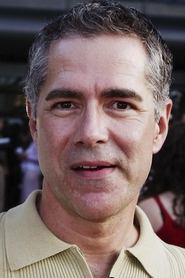 NameTerry RhoadsCharacterJack Russell
NameTerry RhoadsCharacterJack Russell -
 NameTom VirtueCharacterNY Theater Manager
NameTom VirtueCharacterNY Theater Manager -
 NameKarina DeykoCharacterPretty Secretary
NameKarina DeykoCharacterPretty Secretary -
 NameSteven Lee AllenCharacterCrew Member
NameSteven Lee AllenCharacterCrew Member -
 NameRichard ChasslerCharacterMartin Balsam
NameRichard ChasslerCharacterMartin Balsam -
 NameFrank CollisonCharacterHenry Gein
NameFrank CollisonCharacterHenry Gein -
 NameMelinda ChiltonCharacterMargo (Perkins' Double)
NameMelinda ChiltonCharacterMargo (Perkins' Double) -
 NameMary Anne McGarryCharacterHedda Hopper Type
NameMary Anne McGarryCharacterHedda Hopper Type -
 NameJon AbrahamsCharacterReporter #1
NameJon AbrahamsCharacterReporter #1 -
 NameGil McKinneyCharacterReporter #2
NameGil McKinneyCharacterReporter #2 -
 NameEmma JacobsCharacterBlonde Fan
NameEmma JacobsCharacterBlonde Fan -
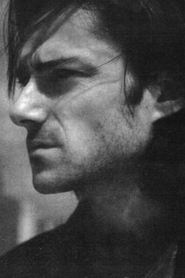 NameSpencer LeighCharacterNunzio
NameSpencer LeighCharacterNunzio -
 NameSean MacPhersonCharacterWaiter
NameSean MacPhersonCharacterWaiter -
 NameGerald V. CasaleCharacterDavid Kirkpatrick
NameGerald V. CasaleCharacterDavid Kirkpatrick -
 NameTara ArroyaveCharacterWoman Waiting in Line
NameTara ArroyaveCharacterWoman Waiting in Line -
 NameJosh YeoCharacterJohn Gavin
NameJosh YeoCharacterJohn Gavin -
 NameJudith HoagCharacterLillian
NameJudith HoagCharacterLillian -
 NameDanielle BurgioCharacterDead Woman in Tub
NameDanielle BurgioCharacterDead Woman in Tub -
 NameJohn LacyCharacterFirst Guard
NameJohn LacyCharacterFirst Guard -
 NameHoward GibsonCharacterParty Guest
NameHoward GibsonCharacterParty Guest -
 NameJosette PrevostCharacterParty Guest
NameJosette PrevostCharacterParty Guest -
 NameLauren StewartCharacterParty Guest
NameLauren StewartCharacterParty Guest -
 NameJaehne MoebiusCharacterParty Guest
NameJaehne MoebiusCharacterParty Guest -
 NameAna MatallanaCharacterFemale Prop Assistant
NameAna MatallanaCharacterFemale Prop Assistant -
 NameLindsey GinterCharacterMale Prop Master
NameLindsey GinterCharacterMale Prop Master -
 NameBrett ChapinCharacterHitchcock Fan
NameBrett ChapinCharacterHitchcock Fan -
 NamePaul HendersonCharacterBeach Walker
NamePaul HendersonCharacterBeach Walker -
 NameKay HendersonCharacterBeach Walker
NameKay HendersonCharacterBeach Walker -
 NameLisa Marie BoikoCharacterFilm Crew
NameLisa Marie BoikoCharacterFilm Crew -
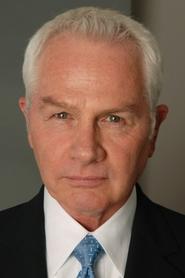 NameRichard BurnsCharacterFilm Crew
NameRichard BurnsCharacterFilm Crew -
 NameMeredith ClaireCharacterFilm Crew
NameMeredith ClaireCharacterFilm Crew -
 NameAlexia DuBassoCharacterFilm Crew
NameAlexia DuBassoCharacterFilm Crew -
 NameJonn FaircrestCharacterFilm Crew
NameJonn FaircrestCharacterFilm Crew -
 NameGina FricchioneCharacterFilm Crew
NameGina FricchioneCharacterFilm Crew -
 NameJames R. GavioCharacterFilm Crew
NameJames R. GavioCharacterFilm Crew -
 NameJames HendersonCharacterFilm Crew
NameJames HendersonCharacterFilm Crew -
 NameBruce HolmanCharacterFilm Crew
NameBruce HolmanCharacterFilm Crew -
 NameDion W.H. HoltCharacterFilm Crew
NameDion W.H. HoltCharacterFilm Crew -
 NameJeremiah HundleyCharacterFilm Crew
NameJeremiah HundleyCharacterFilm Crew -
 NameMichael KurtzCharacterFilm Crew
NameMichael KurtzCharacterFilm Crew -
 NameJoseph MartinoCharacterFilm Crew
NameJoseph MartinoCharacterFilm Crew -
 NameJeremy S. MilesCharacterFilm Crew
NameJeremy S. MilesCharacterFilm Crew -
 NameJon RenfieldCharacterFilm Crew
NameJon RenfieldCharacterFilm Crew -
 NameLinda SansCharacterFilm Crew
NameLinda SansCharacterFilm Crew -
 NameJames TappanCharacterFilm Crew
NameJames TappanCharacterFilm Crew -
 NameJon ThibaultCharacterFilm Crew
NameJon ThibaultCharacterFilm Crew -
 NameSebastian ValeCharacterFilm Crew
NameSebastian ValeCharacterFilm Crew -
 NameJason WingoCharacterFilm Crew
NameJason WingoCharacterFilm Crew -
 NameCynthia YoungbloodCharacterFilm Crew
NameCynthia YoungbloodCharacterFilm Crew -
 NameBill BlairCharacterPremier Theatre Guest (uncredited)
NameBill BlairCharacterPremier Theatre Guest (uncredited)
-
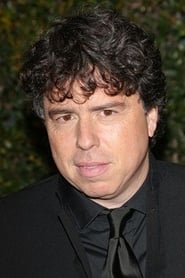 NameSacha GervasiJobDirector
NameSacha GervasiJobDirector -
 NameDanny ElfmanJobOriginal Music Composer
NameDanny ElfmanJobOriginal Music Composer -
 NameJohn J. McLaughlinJobScreenplay
NameJohn J. McLaughlinJobScreenplay -
 NameAlan BarnetteJobProducer
NameAlan BarnetteJobProducer -
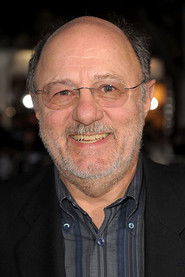 NameJoe MedjuckJobProducer
NameJoe MedjuckJobProducer -
 NameTom PollockJobProducer
NameTom PollockJobProducer -
 NameIvan ReitmanJobProducer
NameIvan ReitmanJobProducer -
 NameTommy ThayerJobProducer
NameTommy ThayerJobProducer -
 NameStephen RebelloJobBook
NameStephen RebelloJobBook -
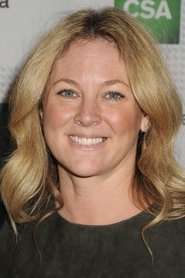 NameTerri TaylorJobCasting
NameTerri TaylorJobCasting -
 NameJeff CronenwethJobDirector of Photography
NameJeff CronenwethJobDirector of Photography -
 NamePamela MartinJobEditor
NamePamela MartinJobEditor -
 NameJudy BeckerJobProduction Design
NameJudy BeckerJobProduction Design -
 NameAlexander WeiJobArt Direction
NameAlexander WeiJobArt Direction -
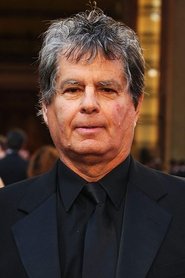 NameRobert GouldJobSet Decoration
NameRobert GouldJobSet Decoration -
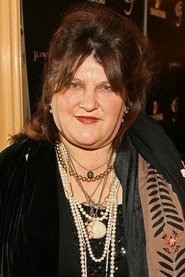 NameJulie WeissJobCostume Design
NameJulie WeissJobCostume Design -
 NameSusannah CarradineJobArt Department Coordinator
NameSusannah CarradineJobArt Department Coordinator -
 NameAlexander LindeJobArt Department Assistant
NameAlexander LindeJobArt Department Assistant -
 NameBrittany Perham-MacWhorterJobAssistant Art Director
NameBrittany Perham-MacWhorterJobAssistant Art Director -
 NameDaniel TurkJobConstruction Coordinator
NameDaniel TurkJobConstruction Coordinator -
 NameDavid WaineJobSpecial Effects Coordinator
NameDavid WaineJobSpecial Effects Coordinator -
 NameJosh HakianJobSpecial Effects Supervisor
NameJosh HakianJobSpecial Effects Supervisor -
 NameSharon StetzelJobVisual Effects Coordinator
NameSharon StetzelJobVisual Effects Coordinator -
 NameKen TerryJobVisual Effects Editor
NameKen TerryJobVisual Effects Editor -
 NameAmir ShahinshaJobVisual Effects Producer
NameAmir ShahinshaJobVisual Effects Producer -
 NameErika AbramsJobVisual Effects Producer
NameErika AbramsJobVisual Effects Producer -
 NameSasi KumarJobVisual Effects Supervisor
NameSasi KumarJobVisual Effects Supervisor -
 NameJohn McAlaryJobCasting Associate
NameJohn McAlaryJobCasting Associate -
 NameKen Van DuyneJobAssistant Costume Designer
NameKen Van DuyneJobAssistant Costume Designer -
 NameCarol KunzJobCostume Supervisor
NameCarol KunzJobCostume Supervisor -
 NameOlga IshkhanovaJobSeamstress
NameOlga IshkhanovaJobSeamstress -
 NameShie RozowJobMusic Editor
NameShie RozowJobMusic Editor -
 NamePhilip TallmanJobMusic Editor
NamePhilip TallmanJobMusic Editor -
 NameDavid NorlandJobMusic Supervisor
NameDavid NorlandJobMusic Supervisor -
 NameSteve BartekJobOrchestrator
NameSteve BartekJobOrchestrator -
 NameEdgardo SimoneJobOrchestrator
NameEdgardo SimoneJobOrchestrator -
 NameJane GoldsmithJobScript Supervisor
NameJane GoldsmithJobScript Supervisor -
 NameMartin SamuelJobHair Department Head
NameMartin SamuelJobHair Department Head -
 NameColleen LaBaffJobKey Hair Stylist
NameColleen LaBaffJobKey Hair Stylist -
 NameJulie HewettJobMakeup Department Head
NameJulie HewettJobMakeup Department Head -
 NameEleanor SabaduquiaJobMakeup Artist
NameEleanor SabaduquiaJobMakeup Artist -
 NameMarsha ShearrillJobMakeup Artist
NameMarsha ShearrillJobMakeup Artist -
 NameMartina KohlJobMakeup Artist
NameMartina KohlJobMakeup Artist -
 NameKelcey FryJobMakeup Artist
NameKelcey FryJobMakeup Artist -
 NameAlex RouseJobWigmaker
NameAlex RouseJobWigmaker -
 NameMark ShoafJobCG Supervisor
NameMark ShoafJobCG Supervisor -
 NameEd MaloneyJobGaffer
NameEd MaloneyJobGaffer -
 NameHarold SkinnerJobGaffer
NameHarold SkinnerJobGaffer -
 NamePaul PostalJobRigging Gaffer
NamePaul PostalJobRigging Gaffer -
 NameDamon DohertyJobRigging Grip
NameDamon DohertyJobRigging Grip -
 NameLars Ian WolfeJobRigging Grip
NameLars Ian WolfeJobRigging Grip -
 NameJosh SeifertJobRigging Grip
NameJosh SeifertJobRigging Grip -
 NameAaron A. GoffmanJobProps
NameAaron A. GoffmanJobProps -
 NameHoward BergerJobProsthetic Supervisor
NameHoward BergerJobProsthetic Supervisor -
 NamePeter MontagnaJobProsthetic Makeup Artist
NamePeter MontagnaJobProsthetic Makeup Artist -
 NameDwayne GradyJobProperty Master
NameDwayne GradyJobProperty Master





